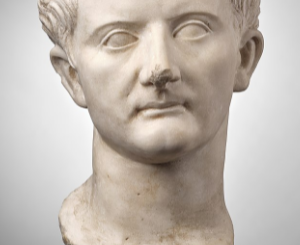10 Greatest Achievements of Augustus, the First Roman Emperor
Invested heavily into many infrastructural projects

The Arch of Augustus in Rimini (Ariminum), which is the , the oldest surviving Roman triumphal arch, was dedicated to Augustus by the Roman Senate in 27 BCE to celebrate his victory at the Battle of Actium
It’s been stated that Augustus was very pleased with the infrastructural projects that he and his son-in-law Marcus Vipsanius Agrippa (Julia the Elder’s husband) accomplished. “I found a Rome of bricks; I leave to you one of marble.” Emperor Augustus once stated.
Some of the notable buildings that Augustus commissioned include the Temple of Caesar, the Baths of Agrippa, the Forum of Augustus with its Temple of Mars Ultor, and the Theatre of Balbus. His trusted advisor and for a very long time his second-in-command Agrippa was placed in charge of the construction of the Pantheon.
Inspired by classical Greek model, Emperor Augustus used the gains from Egypt to build several magnificent buildings, including the Mausoleum of Augustus which was built before his death.
He also properly financed a commission of five senators – the curatores locorum publicorum iudicandorum (translated as “Supervisors of Public Property”) – to maintain Rome’s public buildings and temples. Then there was also the senatorial commission of that supervised repairs of roads. They were known as curatores viarum (“Supervisors for Roads”).
The extensive road networks proved very useful in making Rome’s official courier system (praefectus vehiculorum) very efficient.
Defeated Sextus Pompeius
Another big thorn in the flesh of Augustus and his reign was Sextus Pompeius, the Son of Pompey the Great. Following Second Triumvirate, Pomepeius was given Sicily and Sardinia in 39 BCE to kind of pacify him and prevent any confrontations with the triumvirs. The alliance with Octavian was further strengthened with Octavian marrying Scribonia, the sister/daughter of Pompeius’s father-in-law Lucius Scribonius Libo.
However, Octavian divorced Scribonia less than a year and then married Livia Drusilla in 38 BCE. This divorce angered Pompeius, and soon, a war broke out between Octavian and Pompeius. With some help from Lepidus and Antony, Octavian was able to defeat Sextus Pompeius at the naval Battle of Naulochus. Pompeius was later murdered by one of Antony’s generals.
Used his immense financial power to develop Rome

A colossal statue of Augustus from the Augusteum of Herculaneum, seated and wearing a laurel wreath.
Augustus’ victory over Antony and Cleopatra VII of Egypt enabled him to rake in huge amounts of resources, which he put to good use. For example, he gave generously to Rome’s treasury (aerarium Saturni). The fact that he had such an immense financial power as well as the loyalty of the soldiers, the Senate always reached out to him whenever they encountered a problem in the provinces.
At some point, Senators begged him to take over the provinces, which he humbly obliged, feigning reluctance in the process. In addition to controlling Egypt, the provinces in Hispania, Gaul, Syria, and Cyprus all fell back into his control, making Augustus the most powerful man in Rome and on Earth at the time.
The fact that he had such an immense wealth enabled him to retain effective control of over 20 legions, compared to the five or four that the Senate controlled. Rome was anything but a Republican façade. And the man who was in charge was none other than Augustus.
Although he championed the core traditions of the Republic in public, Augustus was behind the scenes busily creating his dynasty. From the outside, it looked as the Senate and the legislative assemblies held some form of power; however, it was Augustus who was truly in control. This became evident when the Senate honored him with a number of titles, including supreme military commander, tribune and censor.



























